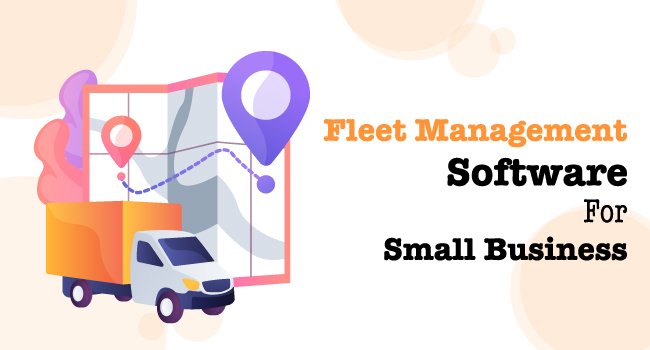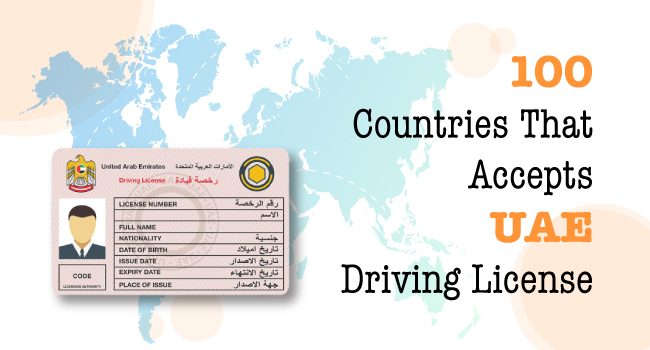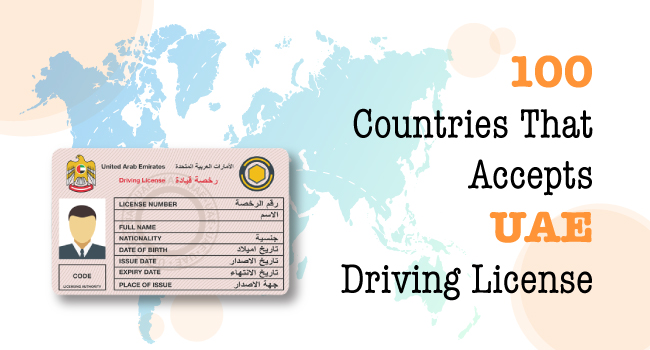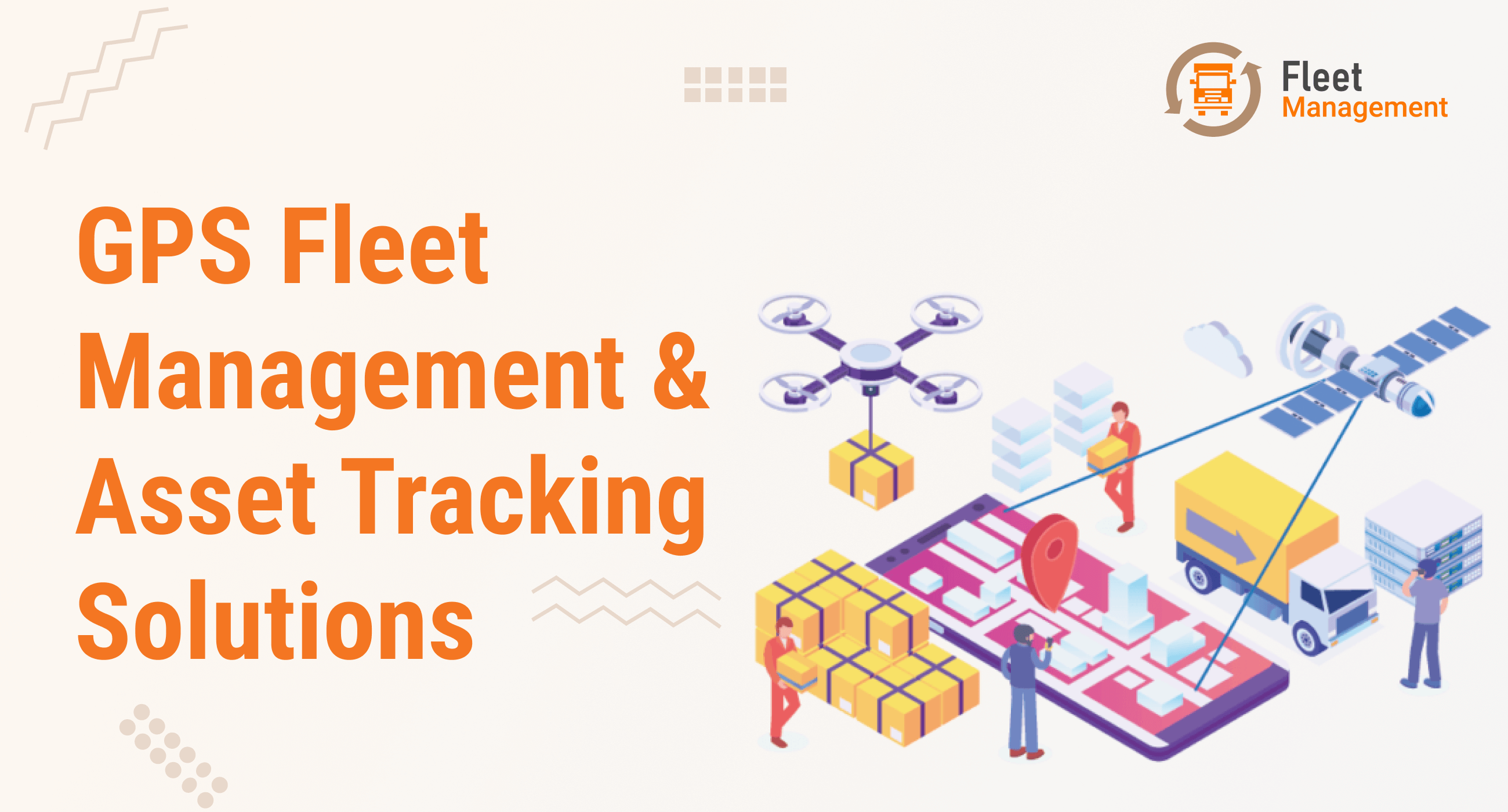Our Blogs
 Fleet Management()
Fleet Management() Car Rental Software()
Car Rental Software() Fleet Drivers()
Fleet Drivers() Infographics(0)
Infographics(0) News(0)
News(0)
Service We Offer
Follow Us
How Much Does Fleet Management System Cost?
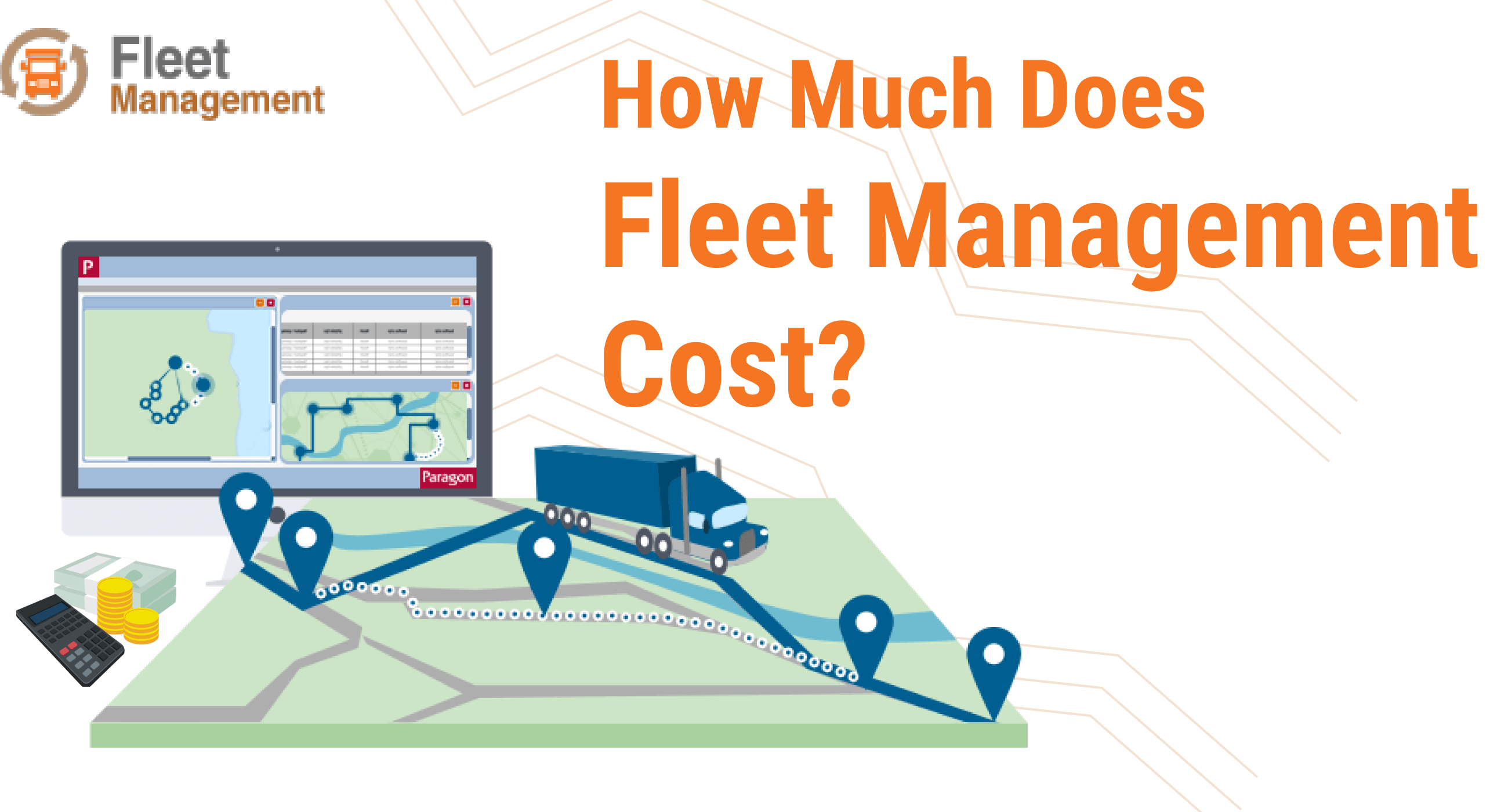
The process of arranging, monitoring, and managing a vehicle fleet via a fleet management system cost (FMS) may assist firms in ensuring the health and safety of their drivers, saving money on fuel, and adhering to the law.
A fleet management system will typically cost roughly $35 per month per vehicle or between $3500 and $6500 per year for a fleet of ten cars. This cost varies greatly depending on your unique company demands, but the efficiency and cost reductions will return your investment that justifies the expenditure.
When comparing the varied prices of fleet management software, your best bet is to get pricing quotations from various fleet management software vendors, each suited to your organization. Let us know what you’re searching for, and we’ll do a free search for you.
Our straightforward form takes less than thirty seconds to complete and may connect you with the finest prices available from various industry-leading providers who meet your requirements. Using our price comparison tool does not obligate you to purchase.
We’ll discuss what Fleet Management is, the average price range for GPS tracking with basic or sophisticated Fleet Management, the cost-impacting aspects to consider when selecting one for your company, and how these technologies may ultimately save you more money than they cost.
Fleet Management Software may improve a fleet’s efficiency, service, and security by monitoring and analyzing data in real-time 24 hours a day. Additionally, the leading suppliers will include ELD mandate compliance, IFTA tools, and other features.
Read Also: “13 Best Fleet Management and GPS Tracking Software for 2022”
What is a Fleet Management System?
Fleet management systems are used to dispatch drivers, provide routing and traffic information, and monitor fuel use, among other functions. Typically, a fleet management system will have hardware components — such as GPS trackers installed on cars — and software components.
The software component enables drivers to maintain accurate records and provides managers with an easy-to-understand overview of their fleet’s location and performance.
If your firm has a fleet of cars, it’s definitely worth the investment – even more so now that the ELD mandate has taken effect. To obtain a sense of the prices, you may use our easy fleet management quotes to get no-obligation quotations from the leading fleet management system suppliers.
Determine the precise cost of fleet management.
Utilize our free tool to compare personalized estimates from all of the industry’s major suppliers.
A fleet management system is a package of hardware and software that consists of three components:
- The device that runs the Fleet Management Software, each vehicle in the fleet has hardware sensors and an interface installed or connected.
- The vehicle’s operating system. It takes data from each car, such as the engine’s state and position.
- The program that serves as the management interface, The fleet manager’s software for receiving and interpreting data from all vehicles.
Different fleet management software collects data in unique ways. Those with sensors integrated into a car’s engine will obtain more detailed information on the engine’s state than those with plug-and-go dashboard equipment.
Certain organizations specialize in or are primarily engaged in “less than truckload” (LTL) shipping, which involves a single-vehicle transporting products to several customers.
These fleets should seek out LTL-friendly fleet management software that provides a specialist load optimization solution that is not available with TL-focused fleet management software.
The finest fleet management software includes active data tracking rather than passive data tracking. A passive tracker takes data while it is being used but does not transmit it to the program until afterward. It implies that it may refresh the data sent by a fleet management system every few seconds or as seldom as once every 10 minutes.
Near-real-time data updates are critical for genuinely efficient fleet management software since they enable fleet managers to respond rapidly to critical information such as late deliveries or vehicle malfunctions. You may also handle certain fleet management software applications through smartphone apps, making responding to problems simpler for managers.
Additional accessories, like in-cab driver instruction devices, may be available with advanced fleet management systems.
Read Also: “What is fleet management – All you need to know”
How are GPS tracking and Fleet Management different?
GPS trackers are not strictly FMSs since they normally do not record anything other than the position of a vehicle. They’re beneficial for personal anti-theft measures and limited fleet management but will fall short of providing the majority of the advantages discussed below.
Simple FMSs concentrate on a few key aspects. Logging driving hours and work breaks, as well as fuel management, are often included. If fleet managers choose a basic FMS, they should ensure that it has routing and dispatching capabilities at the very least.
Beyond the essentials, advanced FMSs provide add-ons that optimize fleet efficiency and return on investment. This category of functionality may include parts, tires, tool management, and accident and maintenance tracking. These systems typically comply with ELD regulations, with the primary objective of arming fleet managers with as much information and authority as possible to operate their company.
GPS tracking, in other words, is a subset of fleet management. Any FMS should be capable of tracking vehicle position and providing other functionality.
Compliance with FMS and ELD
The Federal Motor Carrier Safety Administration mandates an electronic logging device (ELD) for all commercial motor vehicle drivers in the United States to record their work hours. You may find more information on the requirements and the penalties for non-compliance in our comprehensive ELD mandate guide.
Although not all FMSs are ELD compliant, most fleet management software vendors have guaranteed that their service offers the option in light of the new need to record all HOS using ELDs.
Nonetheless, you should ensure that your FMS meets ELD compliance requirements before committing to it. To give you an idea, we examine the finest ELD-compliant FMSs on the market.
How many vehicles am I able to monitor?
A fleet of five cars may profit from an FMS just as much as a fleet of thousands. However, some fleet management software suppliers are more capable of serving bigger fleets than others. If an FMS supplier has a big enough development and customer support staff, it can manage fleets of thousands of cars. Each fleet management software evaluation includes information about the maximum fleet size that a supplier may support.
What kind of vehicles is trackable?
While an FMS monitors basic vehicles such as automobiles, vans, and trucks, some suppliers also provide asset tracking software that allows managers to track different assets. These may be stationary, such as warehouses or sensitive equipment, or they may need extra data monitoring, such as refrigerated units that must maintain a certain temperature.
Our comparative service is available for both fleet management and asset tracking software. When inquiring, make careful to inquire about the features available for your specific cars or assets.
Video Guide on Fleet Management
It’s beneficial to look at a case study to understand better how a fleet management system may improve a firm.
Costs of Fleet Management
As discussed before, fleet management charges vary according to the requirements of your company fleet. Expect to spend more if you want to monitor a fleet of 50 food delivery vehicles, which includes real-time route planning, two-way communications, temperature, fuel information, quick DVIR inspections, ELD tracking, and safety maintenance warnings.
Then, you would track a group of ten traveling hair stylists in small cars. Apart from the characteristics and quantity of your fleet, several additional variables may affect costs—read more about them below.
It’s important to understand how expenses vary significantly based on the size and scope. The best fleet management services will always customize their pricing to your specific requirements.
It might make cost comparisons seem more difficult; we suggest utilizing our easy fleet management pricing quotes tool to assist. It will take you just under a minute to fill out, and it will let you quickly compare quotes from different providers.

What Factors Affect Fleet Management Costs?
The entire cost of an FMS may include four distinct expenses; however, this varies according to how each firm frames its quotes:
- Hardware devices – each vehicle must be equipped with a hardware device, which may be purchased or leased.
- Program licenses — a monthly or yearly subscription price covers the licensing of the software used, and the charge varies according to the software’s services supplied.
- Installation services – although a plug-and-play gadget does not need installation, a wired device does. Certain FMS providers provide free installation, while others provide a free installation only if the fleet signs a two- or three-year contract, and yet others charge regardless.
- Training – some businesses may provide training through manuals, webinars, live internet assistance, or in-person meetings.
Additionally, the price will be influenced by the following:
- Fleet size – almost all FMS providers charge per vehicle (or user) each month, which means that a bigger fleet will pay more than a smaller fleet.
- Essential features – various FMSs monitor various sorts of data, from ELD compliance to fuel tracking to reminders about when to rotate your tires. In general, more comprehensive features cost more.
- Vendor – no two FMS companies are identical, and vendor costs change.
- Shipping service type — Less-than-truckload (LTL) shippers should verify that their FMS monitors several destinations along a single route.
- Additional hardware may be required – These expenses are not included in the FMS price. It would be omitted from the FMS bundle. For instance, drivers may need company-issued tablets or smartphones to access their data on the road and may rely on the FMS to pass roadside inspections.
Licensed or privately owned?
Companies that provide fleet management services may sell the hardware device needed to capture data from inside each vehicle. Alternatively, they may license these devices to a fleet operator, with the option of reclaiming the devices if the operator decides to terminate the contract in the future. The program may also be purchased or licensed individually, Whichever option you choose.
Licensing devices is a more cost-effective choice, especially if you’re also licensing software: If you move to a different FMS, you will certainly be able to eliminate the incompatible devices. If you want to avoid a two- or three-year contract, you may opt to purchase the gadgets and intend to return the initial investment via continued use.
Is it better to be wired or plug-and-play?
Wired FMS devices must be placed separately in each car, directly connected to the engine, to monitor data that might otherwise be unrecorded, especially on older vehicles (wired is best for models older than 1996, according to one manufacturer). However, plug-and-play gadgets connect directly to the dashboard.
Plug-and-play is likely an excellent choice if you have a light- or medium-duty vehicle. If you have a heavy-duty vehicle or want to install a tracker discreetly for anti-theft protection, you should choose a wired device.
Compare the many features of Fleet Management Software in our Best Fleet Management Software Comparison, and look at a couple of them in the comparison below.
Savings on fleet management
Although the initial expenditures may seem excessive, one of the primary reasons fleet managers value these technologies is the cost savings they provide. How?
Savings on fuel
The data covers the length of time that some drivers allow their cars to idle and the rate at which those idling vehicles use gasoline. When combined with the routing enhancements offered by a fleet monitoring system, an average operation may save 13.2 percent on gasoline — which can account for up to a third of an operation’s budget.
Less Harsh Braking
Many FMSs also monitor abrupt stops, enabling fleet managers to identify which drivers brake violently the most often. Avoiding these accidents prolongs the life of a fleet’s brake pads, saving money on maintenance expenditures.
Engine Idling Time Is Reduced
If the engine is running, but the vehicle is stationary, the fleet management software will detect that the engine is idling. The fleet manager may address excessive and frequent idling with their drivers to cut down on future time spent.
Reduced Overtime
Because FMSs monitor each driver’s extra hours, fleet managers will be able to assist drivers in avoiding overtime when it occurs — rather than discovering it weeks later when balancing the checkbook.
Improved Service
According to one Motorola research, GPS-enabled fleet management solutions save transportation operations around 54 minutes each day. It equates to $5,484 per employee.
Data Centralization
According to Aberdeen Group research, fleet operations that use an FMS are more than twice as likely to have a centralized repository for road data, connect that data into their back office, and have data scientists devoted to data analysis.
While this association does not necessarily imply that the FMS is responsible for this data-driven strategy, it implies that it supplies the digital field data necessary to occur.
With data on everything from vehicle downtime to the maximum speed you can complete specific routes, a fleet operator may optimize its dispatches: FMS data can directly impact a business’s bottom line.
Receive Accurate Fleet Management Cost Estimates
As mentioned before, the actual cost of a fleet management system is highly dependent on a variety of variables.
The most reliable method of obtaining precise pricing estimates is to get a customized quotation. However, there is no need to surf the internet incessantly in quest of comparative pricing.
Filling out our easy fleet management cost comparison form is the easiest way to get an accurate FMS pricing quotation. We can link you with several industry-leading firms to compare personalized bids by providing a few data about your business’s requirements.
Why Should You Use Fleet Management?
There are several advantages to using a fleet management system. It may help you decrease expenses and hazards while also increasing efficiency.
Additionally, it is the law. The ELD mandate requires firms to monitor their drivers’ work hours using an electronic logging device – a fleet management system may assist you in doing this.
A solid fleet management system will also assist you with the following:
- Dispatch management – route planning and driver communication
- Tracking and diagnostics — real-time information on the position and state of the vehicle
- Fuel management – information on the rate at which fuel is used
- Vehicle maintenance – customized alarms for vehicle maintenance may be established
- Financing — information on the wear and tear on cars
- Health management — information on the length of drivers’ work hours and rest periods
- Safety management — information on a vehicle’s driving and cornering speeds enables high-risk drivers’ identification.
Typically, a fleet management system gathers this data while connected to or mounted in a vehicle’s dashboard. It subsequently transmits the data to a fleet manager’s central hub via GPS.
Additionally, fleet management software assists a fleet operation via a few measures that may not result in immediate cost savings but may avert possible disasters down the (metaphorical) road.
- While managers may buy standalone anti-theft trackers, they will automatically monitor a vehicle’s whereabouts if fleet management software is included.
- Vehicle control – Some fleet management systems go beyond data collection and control the engine, enabling managers to regulate vehicle speeds remotely or slow and halt cars as needed, avoiding errors or accidents.
Better Safety
Rapid reaction times are critical, and any GPS fleet monitoring system can notify fleet management within minutes of an incident occurring anywhere in the world. That is not possible with pen and paper devices.
Additionally, since most FMSs gather data on drivers’ dangerous behaviors, ranging from hard braking to tight corners to excessive speeds, managers can address problems before they escalate into traffic incidents. How significant is an FMS’s influence on fleet safety? ELDs are predicted to save 26 deaths per year by the Federal Motor Carrier Safety Administration.
Emissions Reductions
Because an FMS can monitor and eventually reduce fuel expenses, your company will emit less CO2. According to one business, saving $250 in yearly fuel expenditures for each vehicle would reduce 2,500 pounds of carbon emissions per vehicle per year.
Reduced Travel Time
Fleet management systems are meant to locate the shortest and most fuel-efficient route feasible while avoiding empty runs. One benefit is that drivers will have the necessary break between runs. According to one NuStats research, drivers who use traffic-sensitive navigation systems may save up to 18% on any given journey. That’s a whole four days every year for the average motorist.
Read Also: “Advanced Fleet Management: What Is It?”
Best Fleet Management Software Providers
After you’ve better understood what fleet management software can accomplish for your company, take a look at some of the best providers listed below to understand better who you’re working with.
A reputable fleet management company. Its system is to get a sense of who you’re dealing with, simple to use and comprehend. Verizon Connect has many services, such as engine diagnostics and fuel efficiency monitoring. Additionally, it provides best-in-class client care.
Samsara
Samsara is a new fleet management firm founded in 2015. However, it provides a comprehensive fleet management solution that includes all critical functions — such as driver safety, fuel monitoring, routing, and dispatch — while also benefiting from a straightforward installation procedure and robust support choices. Samsara also offers robust customer assistance and staff training, making it an excellent fit for developing businesses.
Teletrac Navman
Teletrac Navman is one of the world’s largest fleet management firms, having operations in the United States, Canada, Mexico, the United Kingdom, Australia, and New Zealand. Teletrac Navman’s fleet management system is affordable and includes GPS vehicle monitoring, two-way messaging, safety warnings, and in-depth vehicle diagnostics.
US Fleet Tracking
US Fleet Tracking does not provide a comprehensive fleet management solution. Rather than that, the firm focuses on selling GPS car trackers. It implies that you will not get as many features as you would with one of US Fleet Tracking’s services, but it may be a more affordable alternative. For example, you will not be able to monitor fuel economy, but you will be able to view the real-time location of every car in your fleet. Additionally, you’ll be able to examine fleet movements, and the system is ELD compliant.
Fleetio
Fleetio is a software-only enterprise, which means that drivers and fleet management communicate and monitor their vehicles using mobile applications. Fleetio is, therefore, more affordable than the majority of its competitors – albeit, without a hardware component, it is not ELD compliant. Despite being a software-only solution, Fleetio packs a punch in capabilities. For instance, you may schedule drivers and monitor vehicle upkeep. If you’re looking to comply with ELD regulations using Fleetio, you may install a tracker from one of the company’s hardware partners.
Best Practices in Fleet Management
If not utilized appropriately, fleet management software exposes fleet managers to a few problems as with any management software. The following are some disadvantages of fleet management systems to be aware of.
Avoid Invading Privacy
Fleet management software is not precisely intended with the driver’s privacy in mind. After all, it keeps track of their speeding tendencies, their position, and how fast they make a 90-degree bend. It is lawful when workers are on the clock; however, employees should be informed of what is being monitored and why. If workers ever use a fleet operator’s cars privately, the operator must ensure that the fleet management software is disabled for these excursions.
Sustain Control of Driver Expectations
Transparency and open communication are the ideal strategies for implementing a fleet management system. In terms of privacy, drivers in a fleet may be displeased with the move away from a passive GPS tracker or paper tracking system to a fleet management program. They may feel uneasy about having their driving habits, and overtime monitored. The fleet management software vendor may supply driver training classes to help drivers with the new procedure.
Additionally, some firms attempt to lessen any negative sentiments workers may have about monitoring by rewarding them for submitting new data, such as awarding awards to drivers who are the most fuel-efficient or have the fewest instances of forceful braking. These rewards may be distributed using various fleet management systems’ driver scorecard reports.
Begin Fleet Management Today
If you’re looking to enhance the management of your commercial fleet, a fleet management system is an excellent place to start – regardless of whether you operate a company with five pizza delivery cars or hundreds of semi-trucks. You’ll improve your efficiency when it comes to organizing driver routes, managing vehicle maintenance, and monitoring driver workloads. Additionally, your firm will be compliant with the ELD regulation in its entirety.


